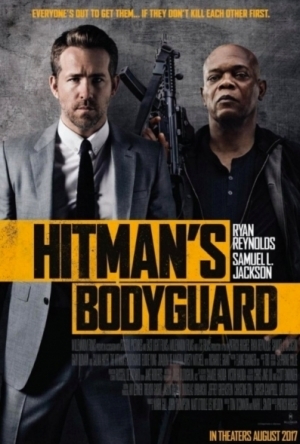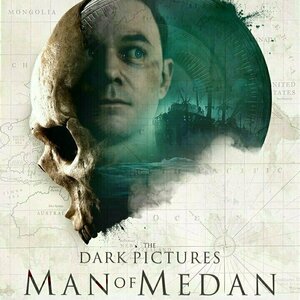Search
Search results

Prague Marco Polo Spiral Guide
Book
For advice you can trust, look no further than Marco Polo. The Prague Marco Polo Spiral Guide is a...

Thailand Marco Polo Spiral Guide
Book
For advice you can trust, look no further than Marco Polo. The Thailand Marco Polo Spiral Guide is a...
Phillip McSween (751 KP) rated Dodgeball - A True Underdog Story (2004) in Movies
Jul 19, 2020
Just Too Much Damn Fun
“If you can dodge a wrench, you can dodge a ball.” In Dodgeball: A True Underdog Story a gym on the verge of bankrupt decides to enter a dodgeball competition to gain the money.
Acting: 10
Beginning: 10
The first few minutes introduces us to the main antagonist Dwight and his cronies over at Globo Gym. It’s hilarious how absolutely ridiculous they are. The set up for the rest of the movie is quick and entertaining.
Characters: 10
Cinematography/Visuals: 7
No, the movie isn’t winning any awards for amazing cinematic work, but it does have its moments. I particularly love how they depicted the local competitions, including one between Average Joe’s gym and a girl scout troupe. The national tournament feels like a real sporting event albeit extremely comical. I also appreciate the different personalities of each team which kept things fresh. You have a team of sumo wrestlers, a hip-hop team, lumberjacks, you name it. I appreciate director Rawson Marshall Thurber’s efforts to keep things interesting and light-hearted.
Conflict: 10
I don’t know how they did it, but they managed to keep the stakes interestingly high with this dodgeball tournament. Average Joe’s is at risk of losing everything and there are a number of times where you think they just might. It’s not a straightforward narrative as there are a number of bumps and bruises along the way that keep things entertaining and give you something to root for.
Entertainment Value: 8
You can’t help but not have fun watching this movie. We all remember what is was like to peg people with one of those magenta balls or catch a ball to save one of your friends and bring them back in the game. The feeling of nostalgia you get from watching this movie is unmistakable.
Memorability: 10
Pace: 10
Plot: 3
Resolution: 5
Overall: 83
There are a plenty of movies that come along where you say, “There is no way in hell this is going to be good.” Most times, you’re right, but in the case of Dodgeball: A True Underdog Story it ends up being surprisingly good. With a number of memorable lines and getting to watch people repeatedly get pegged in the face, this movie has a delightful replay value.
Acting: 10
Beginning: 10
The first few minutes introduces us to the main antagonist Dwight and his cronies over at Globo Gym. It’s hilarious how absolutely ridiculous they are. The set up for the rest of the movie is quick and entertaining.
Characters: 10
Cinematography/Visuals: 7
No, the movie isn’t winning any awards for amazing cinematic work, but it does have its moments. I particularly love how they depicted the local competitions, including one between Average Joe’s gym and a girl scout troupe. The national tournament feels like a real sporting event albeit extremely comical. I also appreciate the different personalities of each team which kept things fresh. You have a team of sumo wrestlers, a hip-hop team, lumberjacks, you name it. I appreciate director Rawson Marshall Thurber’s efforts to keep things interesting and light-hearted.
Conflict: 10
I don’t know how they did it, but they managed to keep the stakes interestingly high with this dodgeball tournament. Average Joe’s is at risk of losing everything and there are a number of times where you think they just might. It’s not a straightforward narrative as there are a number of bumps and bruises along the way that keep things entertaining and give you something to root for.
Entertainment Value: 8
You can’t help but not have fun watching this movie. We all remember what is was like to peg people with one of those magenta balls or catch a ball to save one of your friends and bring them back in the game. The feeling of nostalgia you get from watching this movie is unmistakable.
Memorability: 10
Pace: 10
Plot: 3
Resolution: 5
Overall: 83
There are a plenty of movies that come along where you say, “There is no way in hell this is going to be good.” Most times, you’re right, but in the case of Dodgeball: A True Underdog Story it ends up being surprisingly good. With a number of memorable lines and getting to watch people repeatedly get pegged in the face, this movie has a delightful replay value.
Gene Simmons recommended Appetite for Destruction by Guns N' Roses in Music (curated)
Kurt Vile recommended Tusk by The Dead C in Music (curated)
Emma @ The Movies (1786 KP) rated The Hitman's Bodyguard (2017) in Movies
Sep 25, 2019
Michael Bryce is a triple A rated executive protection agent. Well... he was, up until he lost one of his high profile clients. Now he's living in the less than luxurious life, with less than A rated clients. What he needs is to get his reputation back, and when his ex appears asking for his help, he could get more than his reputation back.
It's just another job, until he see's who he's supposed to be protecting. Darius Kincaid. Master assassin.
Kincaid needs to get to The Hague to testify against Vladislav Dukhovich, merciless dictator of Belarus. With all the other witnesses dying he's Interpol's last hope. But with Kincaid and Bryce both thinking they know the best way to survive the trip, will they both get there in one piece?
Honestly, I love all the trailers for this film, but this one has the song in it. There's just something catchy about Samuel L. Jackson singing along with a bunch of nuns.
Anyway, to the film. Straight off the bat I'm going to say I loved it. Award winner? Nope. Dramatic master piece? Nope. Hilarious? Abso-motherf***ing-lutely. Reynolds and Jackson play really well off each other all the way through, but for me, the highlight was Salma Hayek. She really was an unexpected gem.
I read views of this online and it made me a little mad... some people just need to lighten up. Some films are just made to be entertaining, and this one had the bases covered... excessive mindless violence, car chases, romance, singing nuns... you couldn't really ask for more... apart from maybe more nudity of Ryan Reynolds. (Just me? Never mind then)
Probably the most entertaining Unlimited screening I've seen, and I think everyone else agreed. I haven't been in a cinema where that many people have been laughing out loud. I honestly think that is a great achievement in a film.
I'll be buying this one on DVD when it comes out, I think everyone should, it'll really brighten up your day and help you relieve some stress... if like me you enjoy seeing random things getting destroyed. (Only on screen, not in real-life, no need to panic!) Possibly not for those of you who don't like swearing though, as Samuel L. Jackson does get to use swearing like punctuation... and the writers were clearly fond of excessive commas.
It's just another job, until he see's who he's supposed to be protecting. Darius Kincaid. Master assassin.
Kincaid needs to get to The Hague to testify against Vladislav Dukhovich, merciless dictator of Belarus. With all the other witnesses dying he's Interpol's last hope. But with Kincaid and Bryce both thinking they know the best way to survive the trip, will they both get there in one piece?
Honestly, I love all the trailers for this film, but this one has the song in it. There's just something catchy about Samuel L. Jackson singing along with a bunch of nuns.
Anyway, to the film. Straight off the bat I'm going to say I loved it. Award winner? Nope. Dramatic master piece? Nope. Hilarious? Abso-motherf***ing-lutely. Reynolds and Jackson play really well off each other all the way through, but for me, the highlight was Salma Hayek. She really was an unexpected gem.
I read views of this online and it made me a little mad... some people just need to lighten up. Some films are just made to be entertaining, and this one had the bases covered... excessive mindless violence, car chases, romance, singing nuns... you couldn't really ask for more... apart from maybe more nudity of Ryan Reynolds. (Just me? Never mind then)
Probably the most entertaining Unlimited screening I've seen, and I think everyone else agreed. I haven't been in a cinema where that many people have been laughing out loud. I honestly think that is a great achievement in a film.
I'll be buying this one on DVD when it comes out, I think everyone should, it'll really brighten up your day and help you relieve some stress... if like me you enjoy seeing random things getting destroyed. (Only on screen, not in real-life, no need to panic!) Possibly not for those of you who don't like swearing though, as Samuel L. Jackson does get to use swearing like punctuation... and the writers were clearly fond of excessive commas.
Phillip McSween (751 KP) rated Amélie (2001) in Movies
Sep 30, 2019
Beautiful Movie With a Beautiful Ending
You watch a film like Amelie and you leave thinking, “Some directors just have it figured out more than others.” This movie is pure genius from start to finish, one of my all-time faves for a number of reasons. In this story, Amelie seeks to change the world and make it a better place by helping the people around her.
Acting: 10
While I don’t know many of these actors since this a French film, I was impressed by the multitude of brilliant performances. Audrey Tautou shines as main character Amelie, carrying with her a sincere innocence that is hard not to gravitate towards. From the smaller roles, like Amelie’s parents, to the more pivotal roles, every actor/actress impressed me to no end.
Beginning: 10
Characters: 10
The movie revolves around Amelie’s sensational character. You are captivated by her from her very first moments on screen as a young child. She leads an interesting life that revolves around a number of interesting people. I know I’m being vague, but this is one of those films that’s best experienced when you know very little about it.
Cinematography/Visuals: 10
Conflict: 10
Entertainment Value: 10
Memorability: 10
A classic film is one that breaks the mold giving you something that you won’t find anywhere else. That is very much the case in Amelie as it carries a style all its own. The film is interwoven with grainy flashbacks that are uniquely done in unforgettable fashion. It is hard not to be captivated by these scenes as they unfold. I also appreciate how it dives into the challenges that shy introverts face on a daily basis.
Pace: 10
Plot: 10
Great story with enough diversions to keep you entertained throughout. It is such a simple idea, but is pulled off with complex characters and stories-within-stories. It’s almost disappointing when it ends.
Resolution: 10
Concludes just as it should. It gives you the ending that you hope for without overstaying its welcome. A nice bow on a beautiful present.
Overall: 100
We watch movies for an escape, to be captivated by something better than our own mundane lives. Amelie is magical from beginning to end and the greatest movie I never knew existed until recently. To put it simply, it is damn-near perfect.
Acting: 10
While I don’t know many of these actors since this a French film, I was impressed by the multitude of brilliant performances. Audrey Tautou shines as main character Amelie, carrying with her a sincere innocence that is hard not to gravitate towards. From the smaller roles, like Amelie’s parents, to the more pivotal roles, every actor/actress impressed me to no end.
Beginning: 10
Characters: 10
The movie revolves around Amelie’s sensational character. You are captivated by her from her very first moments on screen as a young child. She leads an interesting life that revolves around a number of interesting people. I know I’m being vague, but this is one of those films that’s best experienced when you know very little about it.
Cinematography/Visuals: 10
Conflict: 10
Entertainment Value: 10
Memorability: 10
A classic film is one that breaks the mold giving you something that you won’t find anywhere else. That is very much the case in Amelie as it carries a style all its own. The film is interwoven with grainy flashbacks that are uniquely done in unforgettable fashion. It is hard not to be captivated by these scenes as they unfold. I also appreciate how it dives into the challenges that shy introverts face on a daily basis.
Pace: 10
Plot: 10
Great story with enough diversions to keep you entertained throughout. It is such a simple idea, but is pulled off with complex characters and stories-within-stories. It’s almost disappointing when it ends.
Resolution: 10
Concludes just as it should. It gives you the ending that you hope for without overstaying its welcome. A nice bow on a beautiful present.
Overall: 100
We watch movies for an escape, to be captivated by something better than our own mundane lives. Amelie is magical from beginning to end and the greatest movie I never knew existed until recently. To put it simply, it is damn-near perfect.

Planner Pro - Daily Calendar & Personal Organizer
Productivity
App
Designed for those people who’re looking for a full-featured app to manage daily life better....
Sarah (7800 KP) rated the PlayStation 4 version of The Dark Pictures Anthology: Man of Medan in Video Games
May 29, 2020
A thrilling play
Games like this dont appeal to everyone. It's not full of action, beating people up or a massive open world full of free play. It also doesnt drag on for 40+ hours. However for people like me who struggle with those type of games, Man of Medan is a breath of fresh air.
I'd previously played and rather enjoyed Until Dawn, and I'm pleased to say this follows much in the same vein although it's probably a much shorter story. Graphically this is very impressive looking and like Until Dawn, they've thrown in yet another recognisable face (this time it's Shawn Ashmore aka Bobby from X-Men). The characters look amazing and the setting too. The story too is a good and interesting one, although it does feel a little similar to other stories (like Ghost Ship) and may be a tad predictable. We worked out what was going on well before the third act. That said, I still found it to be absolutely terrifying. Playing a game like this is a lot scarier than watching any horror film!
The gameplay works really well. The fact that you can play this with friends, either online or couch co-op, adds another fun dimension to it all. The decision making also means that there are so many different endings and outcomes (I believe there's over 60 possible ways for the characters to die) that the replayability is surprisingly better than you'd expect. Admittedly it would probably get a bit tedious trying to uncover absolutely everything and all possible outcomes, but playing a few times over is still enjoyable.
The only downsides are the lag and load issues. Most likely due to the decision making process and actions, there is a noticeable lag in some of the cut scenes and movements which is bearable but can noticeably affect the smooth running of the game. There's also the characters themselves. They look great, but they're very cliched and have very little personality or interest too them. And the script is a little cheesy at times which only further impacts with a slight dislike of the characters. Part of me actually wanted to kill them all off...
Overall a great story and an interesting game to play, if you're looking for something a little different.
I'd previously played and rather enjoyed Until Dawn, and I'm pleased to say this follows much in the same vein although it's probably a much shorter story. Graphically this is very impressive looking and like Until Dawn, they've thrown in yet another recognisable face (this time it's Shawn Ashmore aka Bobby from X-Men). The characters look amazing and the setting too. The story too is a good and interesting one, although it does feel a little similar to other stories (like Ghost Ship) and may be a tad predictable. We worked out what was going on well before the third act. That said, I still found it to be absolutely terrifying. Playing a game like this is a lot scarier than watching any horror film!
The gameplay works really well. The fact that you can play this with friends, either online or couch co-op, adds another fun dimension to it all. The decision making also means that there are so many different endings and outcomes (I believe there's over 60 possible ways for the characters to die) that the replayability is surprisingly better than you'd expect. Admittedly it would probably get a bit tedious trying to uncover absolutely everything and all possible outcomes, but playing a few times over is still enjoyable.
The only downsides are the lag and load issues. Most likely due to the decision making process and actions, there is a noticeable lag in some of the cut scenes and movements which is bearable but can noticeably affect the smooth running of the game. There's also the characters themselves. They look great, but they're very cliched and have very little personality or interest too them. And the script is a little cheesy at times which only further impacts with a slight dislike of the characters. Part of me actually wanted to kill them all off...
Overall a great story and an interesting game to play, if you're looking for something a little different.

Flitsmeister
Navigation and Travel
App
Flitsmeister saves you money on fines, warns you of traffic jams and prevents accidents. Over...





